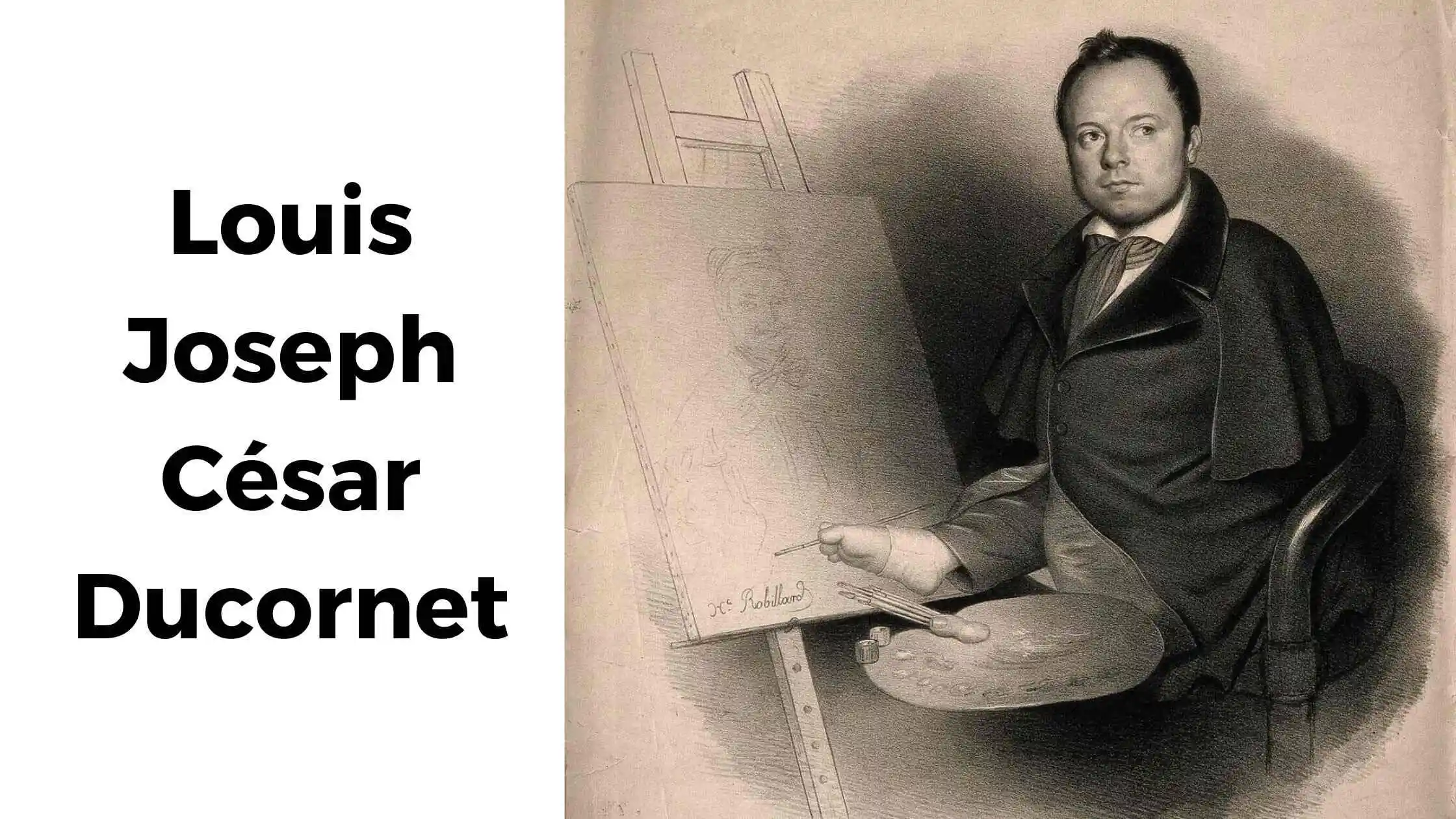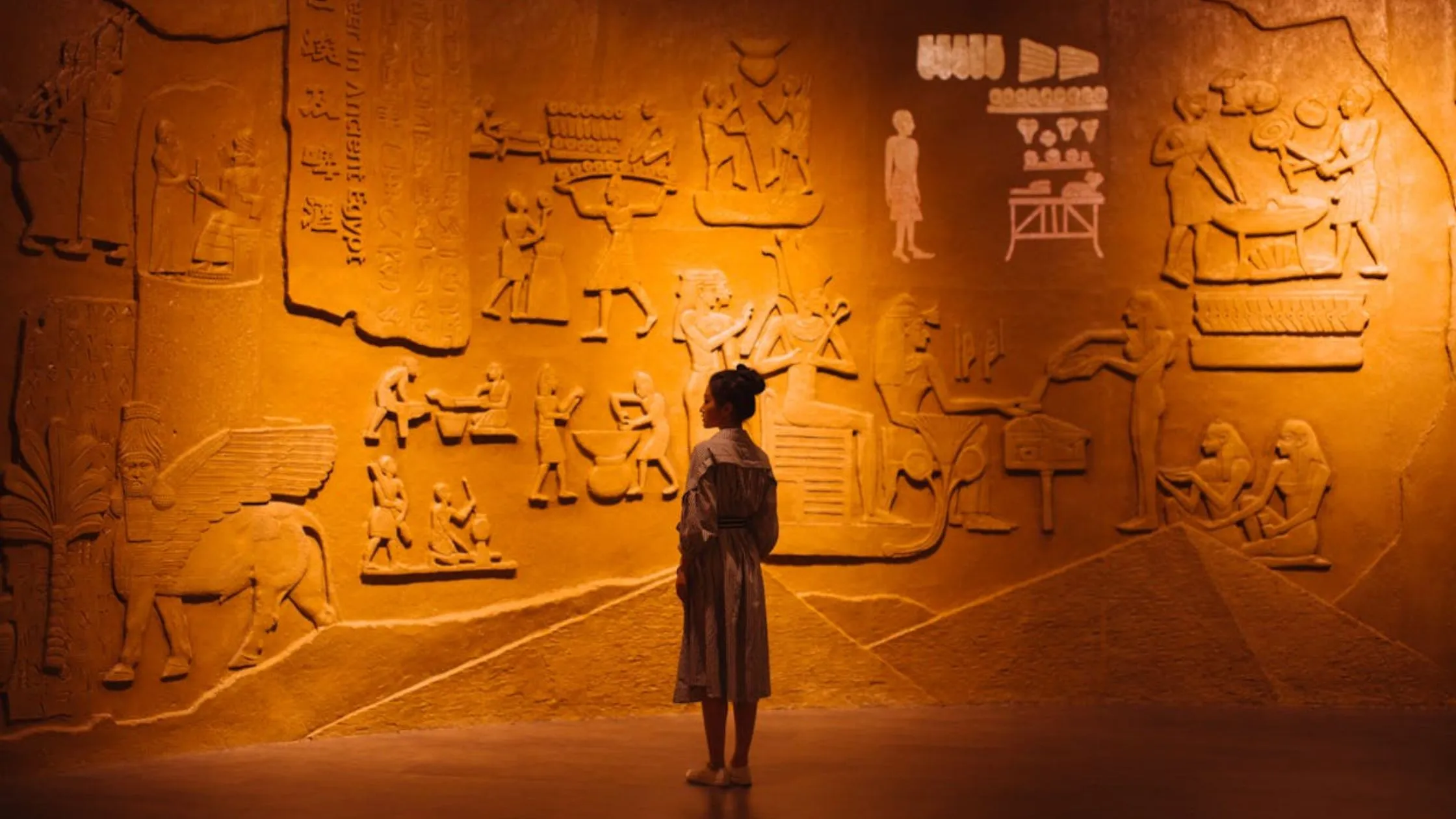The life of Louis Joseph César Ducornet is a testimony to human strength, creativity, and the unbeatable spirit that can overcome adversity. In 1806, at Lille, France, Ducornet was one of the more outstanding artists of the 19th century, leaving an indelible mark despite not having arms.
Ducornet painted with his feet, an achievement that amazed not just his contemporaries but continues invigorating generations of historians, artists, and people with physical disabilities. His life, work, and influence tell a fantastic story of the triumph of the limitations of disability.
The Early Life of Louis Joseph César Ducornet
Louis Joseph César Ducornet was born into humble circumstances. His absence of arms was not just a physical handicap but also a major social hurdle at a time in which disabilities were hardly accepted and often treated with stigma. However, the family of Ducornet recognized his natural talent for creativity at an early age and encouraged him to discover the realm of art.
At a very early stage, Ducornet showed a remarkable ability to paint and draw with his feet, regardless of the challenges this presented. His parents’ constant support helped him channel his talent to the fullest and follow his artistic goals.
Growing up in Lille, Louis Joseph César Ducornet’s home was defined by the challenges of society and the opportunities to grow as an artist. In a society that was primarily unfriendly to people with physical disabilities, His path was not an easy one. However, he found his first teacher through Francois Louis Joseph César Ducornet Watteau, one of the most renowned artists of his time. Watteau acknowledged Louis Joseph César Ducornet potential and urged him to keep building his skills despite the challenges.
The Art of Overcoming Disability

Louis Joseph César Ducornet physical impairment is among the most fascinating aspects of his life. He was born without arms and needed to create a painting technique using his feet. This feat required a lot of strength, endurance, and control. Louis Joseph César Ducornet footwork was an efficient solution and an expression of his unstoppable determination.
There is a saying that the best art is created by overcoming obstacles, and Louis Joseph César Ducornet art embodies this notion with every stroke. What could have appeared to be an impossible feat to many was the foundation for his remarkable success.
Although his physical condition made even the most basic tasks challenging, Ducornet never allowed it to limit his creativity or abilities as an artist. Ducornet learned to overcome his physical limitations and became adept at drawing precise human figures, landscapes, and mythological subjects.
The focus on conquering obstacles helped to create his distinctive style, which incorporated the elements from Romanticism and Neoclassicism two major artistic movements during his time.
Artistic Training and Education Artistic Training
Louis Joseph César Ducornet early training in art was profoundly affected by his friendship with Francois Charles Watteau. Under Watteau’s guidance, Ducornet honed his technical abilities, gaining the fundamentals of color, composition, and the art of form.
Watteau offered Ducornet formal training that was nurturing and demanding, allowing Ducornet to develop his art while encouraging creativity. This mix of instruction and freedom of expression allowed Ducornet to create a distinct aesthetic that was classic and personal.
The traditional training in art at the time was a significant amount of hands-on training, which Ducornet was required to tackle in a completely unique manner. However, he was able to master the complexities of working with oils, tempera, as well as other media, which proved that the most demanding physical limitations could be overcome by true expression.
His style became a source of source of inspiration for artists throughout France and proved that with perseverance and a willingness to change the limitations that the body has to endure can be overcome.
Louis Joseph César Ducornet Unique Painting Style
Louis Joseph César Ducornet work is noted for his meticulous concentration on detail, usually focusing his work on historical, mythological as well as religious subjects. His paintings convey a sense of emotion and drama, keeping with the Romantic values of that era. What made Ducornet stand out, aside from his handicap, was his capacity to portray complex emotions and intricate details with great precision.
His work not only showed his deep interest in the past and mythology but also demonstrated his ability to express deeply human emotions, which many artists who use more conventional methods have been unable to do.
His unique painting style could be explained by the physical limitations of using his feet. The precise motor control needed to produce exact art without hands required him to think about art differently.
The manner in which his brush sat on the canvas was different from those of other artists, which gave his art an unmistakably distinctive style. The uniqueness of his technique was not unnoticed by his contemporaries, a lot of whom were impressed by his tenacity as well as his technical skills.
Portraits of Louis Joseph César Ducornet

Portraits are a prominent feature in the works of Ducornet. The artist’s ability to capture faces and bodies is notable in light of the physical obstacles he had to face. In his portraits, Ducornet could convey not just his subjects’ physical appearance but also their personality’s subtleties.
His ability to draw out these subtle traits distinguishes him from the majority of his contemporaries. When he paints the elite of the rich or more humble subjects his portraits reflect an understanding of the human condition.
The way he expressed emotions, achieved with intricate brushwork and a subtle color palette, made his subjects unusually come to life at the time. Louis Joseph César Ducornet portraits typically feature delicate lighting and intricate details, which create an impression of intimacy between the person viewing and his subject.
The personal connection between the subject and the viewer is the hallmark of the work he produces, and further demonstrates his status as an outstanding portraitist.
Conclusion
Louis Joseph César Ducornet story is a shining illustration of human resilience, talent and imagination. Born with a major physical impairment He not only fought the limitations of his disability, but also made himself one of the most outstanding artist that he encountered in the course of time. His work, praised for their emotional profundity and technical precision continue to inspire people who love art and confront their own difficulties.
The legacy of Ducornet is a powerful proof that the human spirit is able to overcome even the most daunting obstacles to reach the heights of success.
FAQs
What were the challenges Louis Joseph César Ducornet face in his daily life?
Ducornet had no arms when he was born, which was a physical problem which presented significant hurdles in his daily routine and in his professional profession in the field of art. He was able to overcome his challenges by establishing an innovative method of drawing with his feet.
How did the disability of Ducornet influence his work?
His impairment forced him to create his unique style of painting. This was not just what made his work distinctive in terms of technique but also gave it a sense of determination and creativity that helped the work stand out from his fellow artists.
Who were his most influential influencers?
Francois Louis Joseph Watteau, Louis Joseph César Ducornet mentor, played an important contribution to Ducornet’s growth as an artist. Watteau’s advice assisted Ducornet develop his skills and helped him gain confidence to follow his artistic ideas.
What themes are prevalent in the work of Ducornet?
Ducornet often engaged in mythological, historical themes of religion in his artwork. His work is praised for its dramatic intensity and emotional depth, typical in France’s Romantic style.
What was the reception of Ducornet work in his lifetime?
Despite his limitations, Ducornet gained considerable recognition for his work. Ducornet exhibited at prestigious venues and received praise from art critics as well as peers.
What is the legacy of Louis Joseph César Ducornet today?
The legacy of Ducornet is the symbol of triumph against the odds. Ducornet is not just remembered for his creative contributions, but also for being an inspiration to people suffering from disabilities, proving that obstacles can be overcome through perseverance and creativity.




